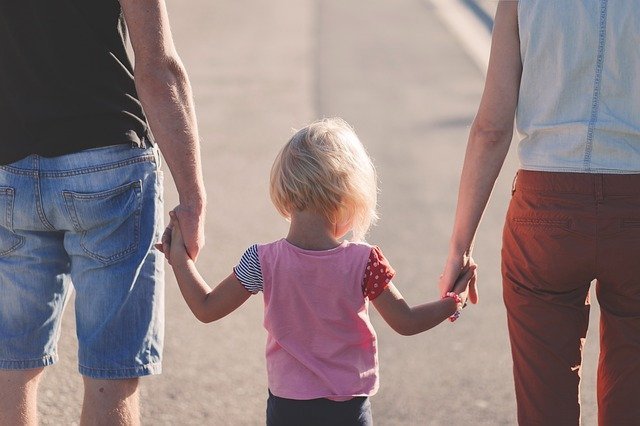
Behavioral control and psychological control are two kinds of parental control that psychologists investigate.
Parents’ efforts to establish clear guidelines and oversee their children’s actions fall under behavioral control, whereas parents’ attempts to set limitations on their children’s thoughts and feelings fall under psychological control.
But which type of parental control is more effective?
What is parents’ behavioral control?
Parents’ behavioral control is associated with better child development outcomes.
Children and adolescents are less likely to use drugs and engage in dangerous behavior if their parents establish rules and restrictions on their conduct (e.g., curfews for being home by a certain time, informing parents of where they will be going and who they will be with).
Behavioral control is also linked to better academic achievement, as children who are encouraged to complete their homework and praised for their efforts tend to achieve greater academic success.
What is Parents’ psychological control?
Psychological control, on the other hand, is often linked to poorer child development outcomes.
Children and teens are more likely to be anxious and depressed if their parents utilize psychologically controlling methods to influence their kids’ beliefs and feelings.
Guilt induction (making children feel guilty if they don’t share their parents’ ideas and feelings) and love withdrawal (making children feel that their parents will withdraw their love if the children don’t share their views and feelings) are both forms of psychological control.
Behavioral versus Psychological Control
Parents who utilize behavioral control focus on making rules, establishing routines for everyday life, monitoring their kids’ actions, and offering encouragement when children follow these rules.
Parents who utilize psychological control, on the other hand, focus on making their children feel guilty or unloved if they disagree with their parents’ ideas and beliefs.
Behavioral control is associated with better child development whereas psychological control is linked to poorer child outcomes.
In spite of these broad trends in research, certain interesting cultural variances exist.
In particular, behavioral control is more prevalent in some societies than others, likely decreases over time as children grow faster in one culture than in another, and is associated with other aspects of parenting differently across cultures.
In other words, researchers have found that children who are subjected to more coercive parenting styles experience poorer mental health outcomes.
In some cultural settings, parents who use more behavioral control are also warmer and more affectionate toward their kids, but in other cultural contexts, greater behavioral control is unrelated to parental warmth or has the opposite effect.
Parents typically decrease their behavioral control over time, but this is not always the case, some parents increase behavioral control even as their children grow into adults.
Finally, parental warmth and behavioral control also interact differently across cultures to shape child outcomes.
So, whenever it comes to parenting one has to keep in mind that what works for your children might not work for others’ kids because of cultural differences.
Which one you should use?

In contrast to behavioral control’s cultural diversity, psychological control appears to be harmful to youth well-being across cultures.
Psychological control is particularly dangerous because it belittles children’s own experiences and disregards their uniqueness.
Psychological control is especially problematic throughout adolescence when parents are unable to acknowledge that they can be distinct from but still connected to their children.
Children and adolescents across cultures recognize that their parents have legitimate authority over certain aspects of their lives.
Children and teens are more inclined to think that their parents have valid authority over domains such as morality, health, and safety than personal ones (such as what clothes an adolescent is permitted to wear or what music an adolescent may listen to).
The extent to which parental behavioral and psychological control affects children’s well-being depends on whether parents are seen as attempting to assert authority in domains where they have legal power or not.
Gone are the days when the parent’s word was final and was not to be challenged by children.
Today, there is no place for psychological control in one’s life largely because it cripples your emotional intelligence which is important for you to become successful at work, within your social circle, etc.
At the end of the day, what matters most are your personal relationships.
How does your upbringing affect the way you raise your own children?
We all know that psychological development is influenced by growing up in a family.
What about families themselves, though?
Families are so diverse-they come in all shapes and sizes that it is not surprising that researchers have struggled to define them.
One common way of dividing up families, however, is by looking at how much the parents in any given household resemble each other when it comes to looks, attitudes, personal interests, and values.
The further away a child’s parents are from one another in these characteristics, the more likely the child is to grow up with a diverse set of values and beliefs.
However, despite this diversity of family structure that we see today, some old-fashioned stereotypes tell us that boys raised in single-mother households are likely to become delinquent, while girls from the same type of household are liable to suffer from low self-esteem or depression.
In reality, however, children from single-parent households typically do not have worse outcomes than those from two-parent homes.
In fact, a recent study found that adolescents growing up in a household with a single mother had no greater risk of depressive symptoms or delinquency than did kids raised by both parents.
One interesting exception to this rule, however, is that girls who live with their fathers only are more likely to act out than are boys in the same situation.
This finding fits nicely with what researchers know about how girls and boys differ in terms of the ways they respond to living with a single parent.
Girls seem to do better when they have greater emotional support from their parents, thus, girls who spend more time with their fathers might be less vulnerable to depression and delinquency because they receive better care from a parent of the same gender.
- See also: choosing pain may be a key to a meaningful life
- See also: why do difficult experiences have the potential to transform us
Researchers have also found that children in one-parent families may benefit from having a non-custodial parent who maintains contact with them and is involved in their lives.
One recent study, for example, found that children in one-parent families who maintain contact with their non-custodial fathers are less likely to have behavior problems or emotional distress than are kids who have little or no contact with their dads after divorce.
This is especially true for boys whose biological fathers do not live at home but do stay involved by phone or in person.
The researchers believe that these children have a special father figure who provides them with much-needed male guidance and support, especially as young men begin to assert themselves more in the world of peer groups.
Conclusion
The bottom line for parents is that establishing clear standards for conduct and monitoring kids’ and teenagers’ activities can help prevent problem behaviors.
However, if children’s or adolescents’ thoughts and feelings are different from those of their parents, allow them to experience their own thoughts and feelings without trying to make them feel guilty or unwanted.
Also, pay attention to cultural differences when it comes to parenting.



